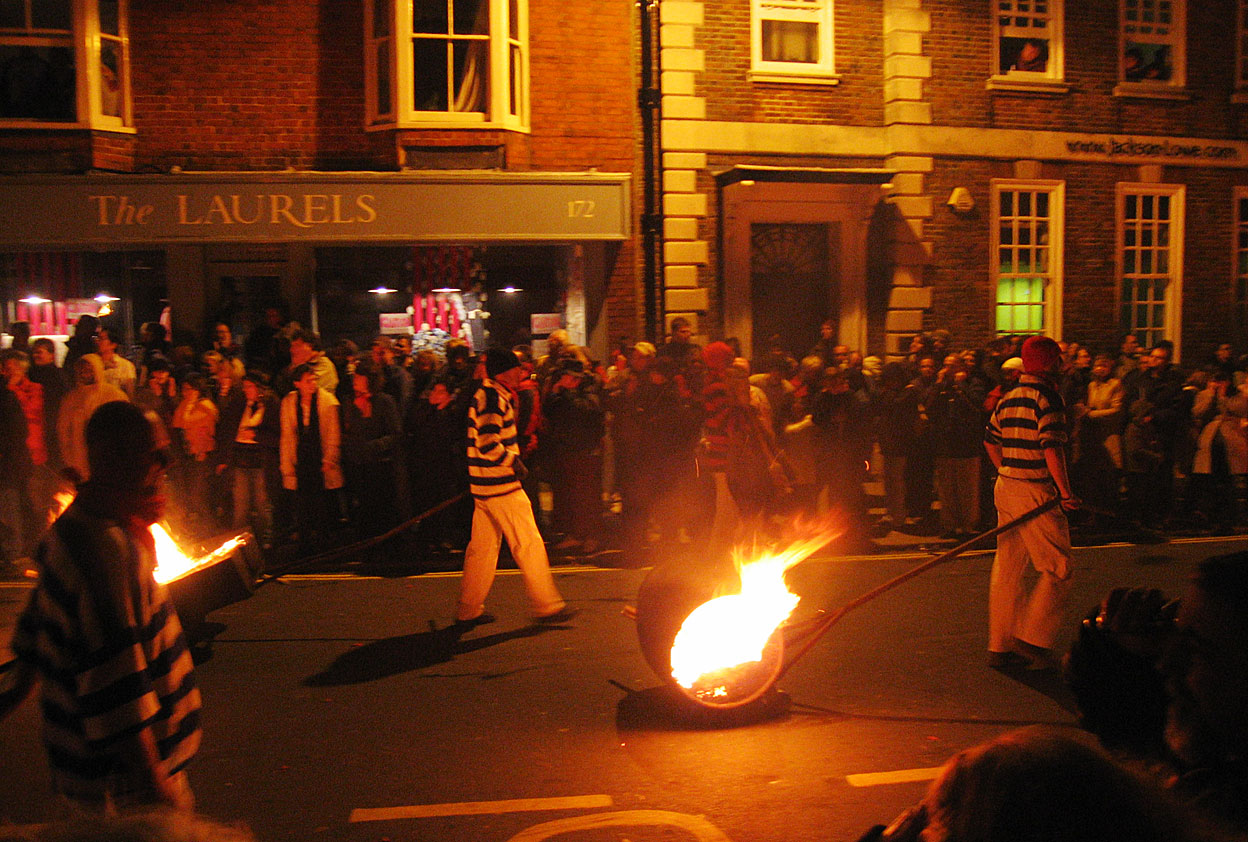While up to 30,000 people attended and enjoyed Lewes Bonfire celebrations on the 5th of November, there was a marked lack of public criticism of the deeply racist ‘traditions’ that the Bonfire Societies persist in practising. While most costumes were fun and impressive, I believe way too many were problematic, including the portrayal of Native Americans, Zulu warriors (complete with black-face and cuddly toy dead animal cloaks), and orientalised Mongolian and Middle Eastern soldiers.
Not only do these costumes contribute to offensive and essentialising stereotypes about marginalised groups, in my opinion they represent an appropriation of cultures that have been seriously threatened by imperialist domination. They also obscure the fact that the people represented by the costumes suffered, and continue to suffer, discrimination and violence at the hands of British and other colonial and neo-colonial powers. Even more worryingly, they also exclude non-white participants from the event by creating an intimidating and potentially unsafe atmosphere for people who may already feel wary as minorities in British streets. Many society members were also mystifyingly dressed in British colonial military costumes topped by the pith helmets that have become a symbol of Britain’s aggressive imperialism, hardly a cause for celebration.
Bonfire society members defend their costume choices as traditions, some of which go back to the 19th century. They object to ‘politically correct’ interventions from outsiders, with one member carrying a placard that read “social justice and identity politics create racism”. The festivities in general are famous for their anti-authority spirit, obvious from their burning of political effigies. This spirit arises from the residents’ own historical experiences of oppression. During the five year reign of Mary I in the 16th century, protestants were persecuted and burned at the stake across the country, including seventeen martyrdoms in Lewes itself. Though protestants have retained cultural and political domination in the UK since that time, Lewes residents feel it is important not to forget the fear, suffering and violence they experienced. Why then, can they not see that their offensive costumes are part of a wider racism that inflicts pain, suffering and violence on racial and cultural minorities today? The truly anti-authority thing to do would be to rail against the structural and societal injustice faced by these minorities.
Lewes Bonfire Night features a proliferation of spectacular costumes that change and evolve every year, regardless of tradition. Suffragettes, for example, were added to the procession in recent times, and are among the most popular with the crowds. Costumes represent all time periods with no rhyme or reason to their grouping. I believe that the offensive costumes are 100% redundant; there is no narrative justification for their inclusion. The societies would lose nothing by removing these costumes from their repertoire, but would succeed in making the event more inclusive, safer, and more enjoyable for those with a moral conscience. Not only this, but refusing to accept the persecution of minorities would be much more in keeping with the tradition and spirit of the event.
So far, the campaign to remove racism from the night has focused merely on ‘toning down’ the costumes of the Zulu warriors, and has succeeded at least in banning skulls, dead monkeys and nose rings from the costumes. There is a very long way to go. www.bonfireagainstracism.wordpress.com is one group to check out for anyone who feels that these sickening practices must be stopped.

